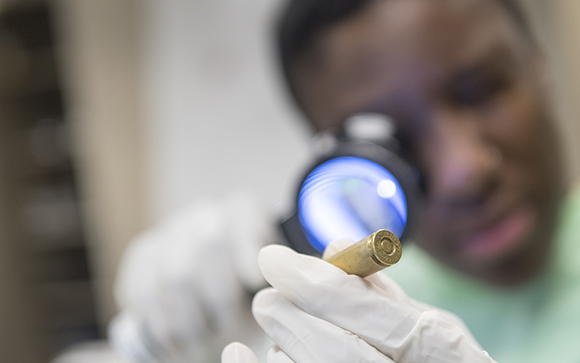February 17, 2021
Bowie State Experts Assess Criminal Justice Bills for Racial Impact
BSU is the First HBCU to Partner with State Legislature for Such a Program

MEDIA CONTACT: Damita Chambers, dchambers@bowiestate.edu, 301-832-2628 mobile
(BOWIE, Md.) – In a pilot program aimed to craft criminal justice laws without racial inequities, Bowie State University faculty will assess proposed Maryland legislation and recommend solutions to avoid bias – making BSU the first historically Black college and university (HBCU) to partner with a state legislature for such an initiative.
Maryland is now one of only six states that consider racial impact statements in designing criminal justice laws, according to the Sentencing Project.
“The program is a game-changer because it allows you to ask the tough questions upfront. To have a seat at the table with our lens and subject matter expertise is extremely important, especially coming from an HBCU,” said Dr. Charles Adams, a criminologist and chairperson of BSU Department of Behavioral Sciences & Human Services. “A lot of these laws and policies that were once thought of as racial neutral, we knew that they were not because we saw the impact in the disparities in the treatment of African Americans in law enforcement, corrections and the court system.”
Dr. Adams leads Bowie State’s interdisciplinary assessment team of experts in criminal justice, counseling and economics – professors Sean Coleman, Matasha Harris, LaTanya Brown-Robertson and Shannell Thomas. The team is developing racial impact statements on three to five proposed laws in the 2021 legislative session. The team’s findings and recommendations will influence the final bills, which may eventually become state law.
Another goal is to identify the data needed to assess racial impact of criminal justice legislation, so that lawmakers can propose legislation to establish state requirements for collecting it. Dr. Adams says that comprehensive data analysis is impossible without a commitment to gather the information.
“There are tremendous gaps in the data around law enforcement and criminal justice policies where we are just not collecting the data,” said Dr. Adams. “In order for us to understand what is happening, there has to be full transparency. You cannot use data if it is not collected, not only in Maryland, but nationwide.”
For example, criminal justice scholars and reform advocates struggle with having limited data to evaluate potential racial disparities in using no-knock warrants, which allow police to enter homes without knocking. A no-knock warrant contributed to the 2020 police killing of Breonna Taylor, an unarmed Black woman in her Louisville, Kentucky home. Out of 22 no-knock warrants issued in the two years before Louisville’s ban in June 2020, 82% of the warrants’ suspects were Black, according to the Louisville Courier Journal’s analysis. The newspaper evaluated only 22 of at least 27 warrants issued during that time because some were sealed.
“I think the fact that we are pausing and thinking about impact is important. I commend the Maryland legislature for taking this bold initiative,” said Dr. Adams. “George Floyd [a Black man killed by Minneapolis police in 2020] has opened up our eyes in preventing discrimination and structural inequality. That’s the backdrop of all of this: we’re asking, “Is this law going to eliminate or exacerbate structural inequality?’”
###
About Bowie State University
Bowie State University (BSU) is an important higher education access portal for qualified persons from diverse academic and socioeconomic backgrounds, seeking a high-quality and affordable public comprehensive university. The university places special emphasis on the science, technology, cybersecurity, teacher education, business, and nursing disciplines within the context of a liberal arts education. For more information about BSU, visit bowiestate.edu.
